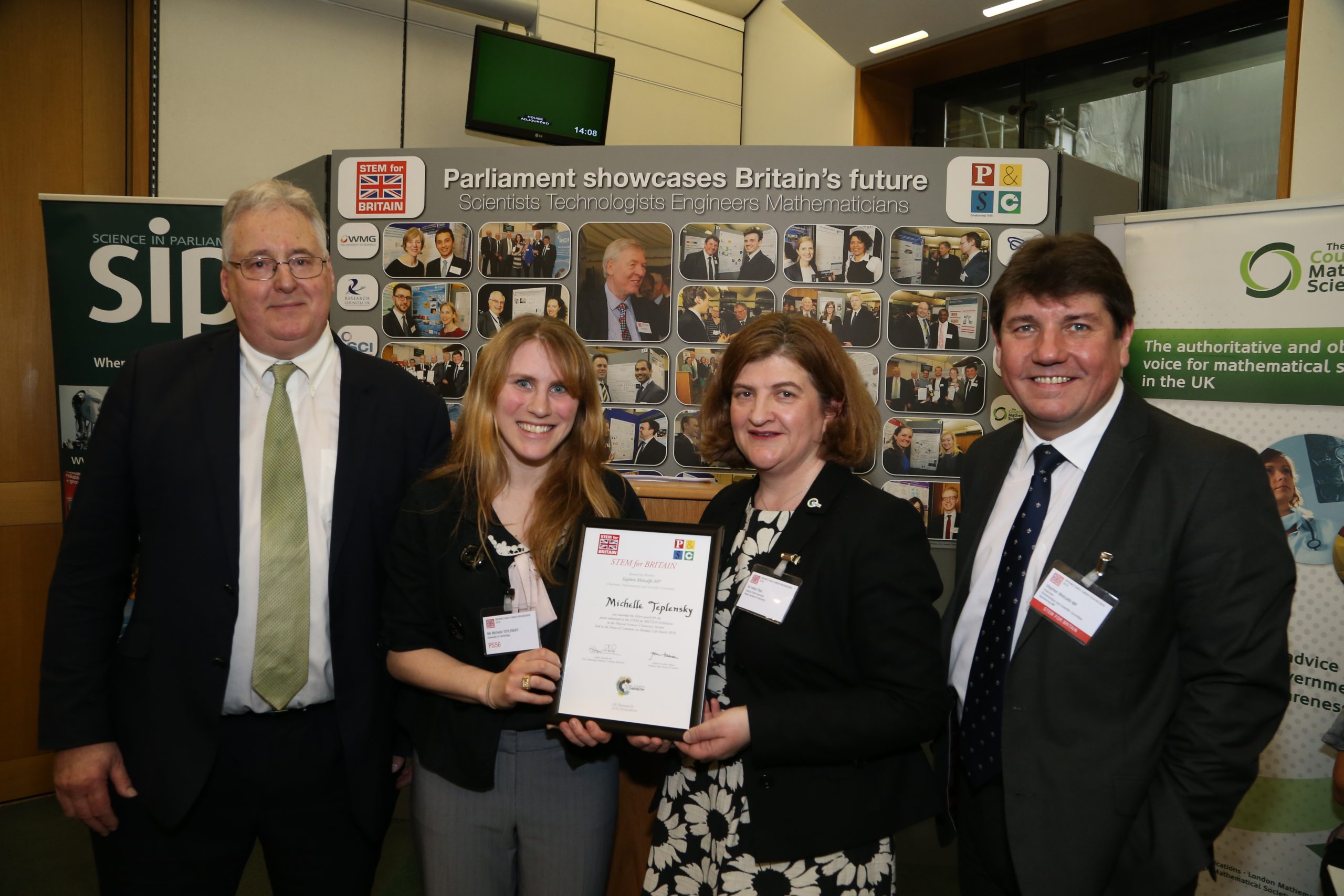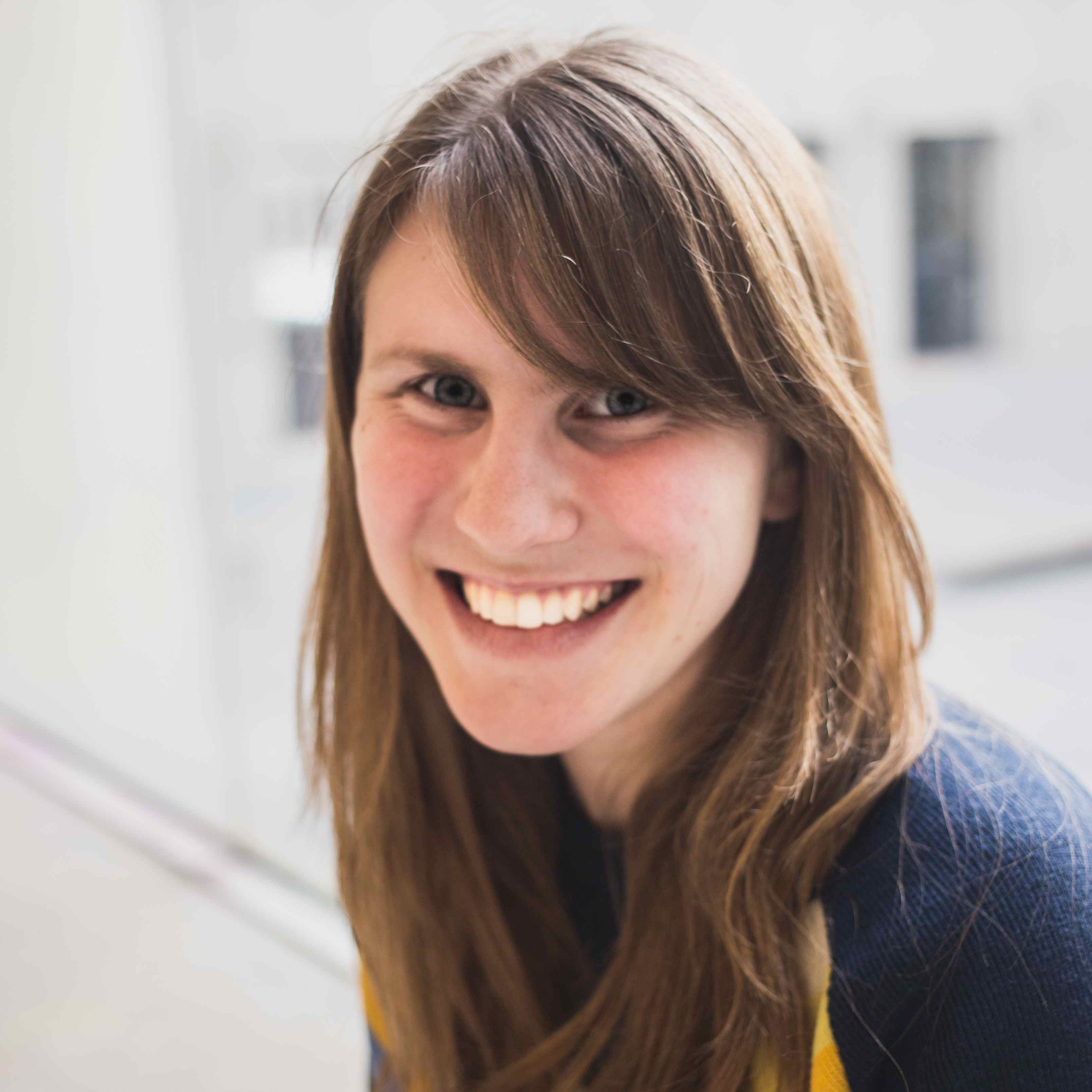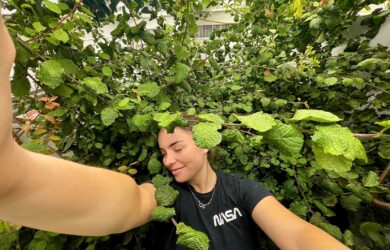
Michelle Teplensky has won the Silver Award at STEM for BRITAIN.
Gates Cambridge Scholar Michelle Teplensky won a Silver Award at the STEM for BRITAIN event at the UK Parliament on Monday.
STEM for BRITAIN aims to encourage, support and promote Britain's early-stage and early-career research scientists, engineers, technologists and mathematicians. It gives scientists the chance to go to Parliament and be in the company of MPs, policymakers and key figures from the world of science policy, as well as other young researchers from around the country.
Michelle [2014] won the £1,250 award in the Physical Sciences (Chemistry) section for her poster Metal-Organic Frameworks as a Tool for Therapeutic Delivery. She is doing a PhD in Chemical Engineering, working in the Adsorption and Advanced Materials Group, supervised by Dr David Fairen-Jimenez.
Michelle presented her research to dozens of politicians and a panel of expert judges. Her poster showed the benefits of using Metal-Organic Frameworks as a tool for therapeutic delivery because of their ability to extend therapeutic release time and avoid the "burst release effect"; protect the therapeutic from degradation; and be a biocompatible system because of their natural biodegradation.
She said: “The initiative caught my eye because I was intrigued by the idea that I could interact with someone in government and show that the application of our research is really connected to everyone – it's not something you need to be an expert to understand.”

Michelle Teplensky
- Alumni
- United States
- 2014 PhD Chemical Engineering
- Downing College
My passion for chemical engineering has led me to the interdisciplinary field of drug delivery and nano-based medicines. While completing a B.S. in Chemical-Biological Engineering at MIT, I had the incredible opportunity to research a variety of chemical engineering applications, including enzyme engineering, biomaterials, and nanotherapeutics. These experiences, and my internships in industry, have given me a holistic view of the field and sparked my curiosity to address it further. At Cambridge, for my PhD Chemical Engineering, I pursued a project that combined novel technologies in engineering, biotech, materials science, and biopharmaceuticals, to address the existent global problem of treating debilitating diseases with a more effective drug delivery using Metal-Organic Frameworks (MOFs). The relationships, knowledge, and technical skillset I gained at Cambridge, through the opportunity from the Gates Cambridge Scholarship, have been influential in building my career as a nanomedical researcher and driver of the commercialisation of new therapies.
I worked as a postdoctoral fellow at Northwestern University, synthesizing 3D nanoscale architectures called spherical nucleic acids (SNAs) to provide kinetic control and delivery of vaccine components (stimulant and target molecules) as a potent immunotherapy. I applied this system to various diseases (including cancer and infectious disease) to analyze efficacy in helping develop immunity.
Now, as a professor at Boston University, I lead a research group working to use nanomaterials design to improve the efficacy of immunotherapies through programmed immune activity.
Previous Education
Massachusetts Institute of Technology B.S. Chemical-Biological Engineering 2014












